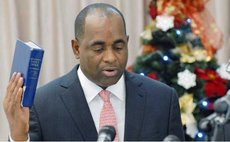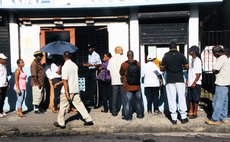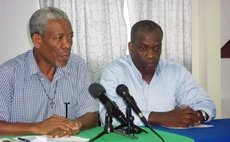That electoral reform issue
Last week there was another twist to the long and winding debate on electoral reform in Dominica when the opposition United Workers Party (UWP), after a meeting with the Electoral Commission, indicated that it is not the UWP only that should have an interest in the subject of electoral reform. All civil society must have a stake in the matter, the party argued. That may be a valid argument, but the UWP, its officials and supporters, would be the major and immediate direct beneficiaries of electoral reform if the process is undertaken and completed before the coming elections. Although we empathise with the frustrated UWP, nevertheless the party must continue leading the fight since the Dominica Labour Party, and most of civil society, appear to be uninterested in the issue of electoral reform. Civil society, in our view, appears to be waiting for the UWP to shake the mango tree before it rushes ahead to gather up the ripe fruits from the ground.
We may be wrong, but last week it looked like the UWP had given up the fight, that it was reluctant to call its members out on the streets peacefully demonstrating for voter ID-Cards and a cleansing of the voters list before the next general election. The key words here are "before the next general elections" and as far as Prime Minister Roosevelt Skerrit is concerned, elections could be held next month or next year; only two people seem to know that crucial date-Prime Minister Skerrit himself and his six-month old son. This, in itself, is total madness.
Some callers to the usual morning talk shows last week indicated that the protests and the picketing and the numerous court cases and the ceaseless talk had all been tried and yet it appears, based on the results, it was like pouring water on dasheen leaf- a total waste of time So to many UWP supporters, instead of more intensive protests, more active advocacy, more drive towards the finish line their party leaders have apparently chickened out. Or to put it more mildly, since the party leaders have decided that the UWP cannot win the electoral reform battle they have opted, in cricketing parlance, to play for a draw.
On the issue of identification cards and the cleansing of the ridiculously bloated voters list, we learnt more than two years ago that the Government of Dominica was planning to implement a multi-faceted identification card, part of a larger project of the Organisation of Eastern Caribbean States (OECS) and funded by the European Union. Now that card will apparently have no impact on the 2015 general elections. So there will be no identification card for voting and the voters' list remains uncleansed. Obviously, we are still at square one.
Recall that after the December 2009 general elections, opposition parties in particular raised the issue of electoral reform and stressed the absolute need for a better system of conducting general elections. Some politicians even suggested that general elections should be boycotted if there was no response from Government to the clamour for equal access to state-owned media, a clean voters' list and voter identification cards.
But while we focused on ID cards and clean lists we forget an essential part of electoral reform and that is campaign financing. There is no doubt that money and politics are inseparable twins. Money determines who runs, who wins and ultimately how the winner governs. Campaign financing reform will also solve the problem of flying voters from far and near to vote for the party with the biggest wallet. Forget the courts- it is too difficult to prove election bribery in our courts.
Almost everyone who witnessed political campaigns here will attest to the fact that it takes large amounts of money to run these events. Over the past few years, for instance, the two major political parties spent tens of millions of dollars on bill boards, radio, television and newspaper advertising; the bussing of supporters to mass rallies (that now resemble massive fetes); paying air tickets for persons from the Diaspora to travel here to vote, and on campaigning from house to house and village to village. In fact, the 2009 campaign was the most expensive election ever held in Dominica. Unconfirmed reports indicated the Dominica Labour Party (DLP) alone spent more than EC$20 million on that campaign. That trend is likely to continue in the 2015 election campaign.
So, as we stated earlier, we need to enact campaign finance laws and enforce them. Otherwise the political culture of corruption will continue to destroy citizens' faith and confidence in their elected officials. It is our view that the level of funds in the opposition parties coffers will determine the difference between the ruling Dominica Labour Party (DLP) and the other parties; not the quality of the candidates or polices, programmes and projects that they will take to the electorate.
On the broader issue of electoral reform, given the controversial results of the 2009 elections, we believe a complete overhaul of the electoral system is absolutely necessary and also much overdue. The system is broken and it must be repaired. If we genuinely believe in the principles of democratic society, elections in Dominica must be conducted using a reliable and accurate register of voters; non-resident electors must be identified; the names of deceased persons must be removed regularly from the register.



